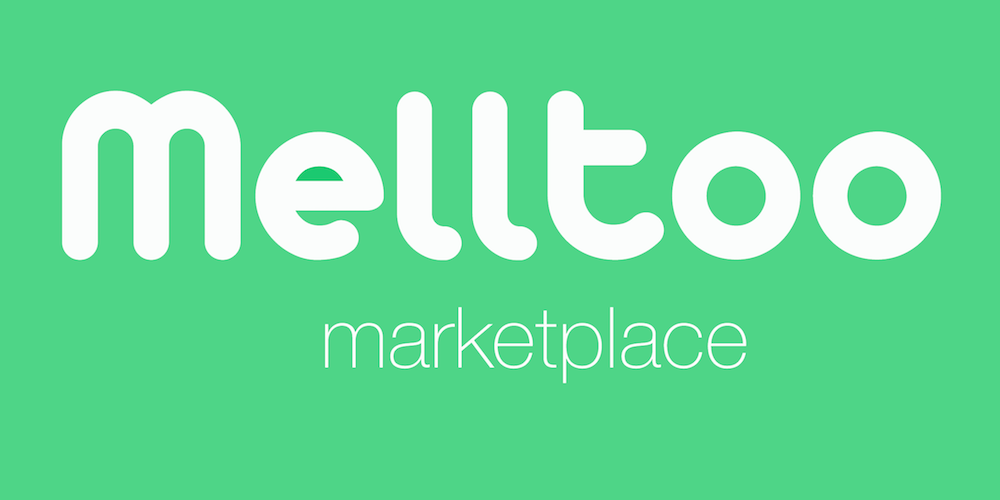Melltoo’s secondhand story

Growing up in France as one of 13 children meant Morrad Irsane’s clothes, shoes, and books, were hand-me-downs.
Irsane has since taken the thriftiness of his Algerian mother and is now the CEO and cofounder of Melltoo, a peer to peer marketplace for secondhand items.
“My mother used to recycle my brother’s clothes, and thank God they became fashionable again from the 60s to the 80s,” he said. “My mum would also buy and sell [items]. So, I grew up in this mentality of buying and selling.”
During the 1980s Irsane’s mother set up a successful business, bringing secondhand goods from France to Algeria and also become a small time angel investor for other buyers and sellers.
“Having been born with a mother like that, you cannot be anything else but me,” Irsane said. His wife, Melltoo cofounder and CTO, Sharene Lee, confirms his assessment. Irsane describes the couple as the classic team of Steve Jobs and Steve Wozniak. “You need two to tango….She crafts everything. So, when I spit ideas, she’s like ‘wait wait’.”

Frustration leads to solution
Launched in March 2014, Melltoo is a web and mobile app that began with Irsane and Lee’s savings from selling their businesses - a café in the US and an import/export company in France. Their primary goal? To bring trust into UAE’s secondhand marketplace after experiencing the lack of it.
Both have been in and out of UAE since 2005, but moved permanently to Dubai in 2014. Frequently infuriating experiences of buying and selling on classifieds websites led Irsane to start his quest for a new solution.
To reduce the discrepancies, Irsane and Lee chose to build a marketplace where they would be the brokers between the buyers and sellers.
“We let people get on with the business, we’re standing there and we’re the referees,” said Lee, a former teacher. “If there’s any funky business, we come in and we’re going to make sure both sides are happy.”
How it works
A seller takes a photo of the item they wish to sell and puts a price on it. A buyer will contact the seller and begin the conversation. Only after the item is delivered are the funds are moved in between the Melltoo accounts of both parties through the inbuilt payment system.

Part of the approach to making buyers and sellers happy was integrating real time conversations and door to door delivery into the app.
As of October 2016, Melltoo has more than 650,000 downloads with more than 100,000 active users.
Irsane and Lee are based in Ras al Khaimah with their six children. Commuting is a futile option according to Irsane, and so the duo has built their team with 35 remote employees clocking in from the UAE, India, Egypt, Tunisia and Pakistan.
Melltoo’s UI/UX and product manager Vitali Rozhevski lives in Kiev, Ukraine and said the differing time zone is an issue, but communicating through platforms like Slack not only keeps the work on track but also helps team spirit.
To tackle the uphill task of on-boarding their first set of users, Lee and Irsane took advantage of search and social media habits to build their base. First they built individual product related apps, and published them on the app store under Melltoo. For instance, if a user looked for used cars in the app store, then Melltoo had an app dedicated to used cars, then would feature in the search results. The move was enough for Irsane to get a call from Google inquiring about the apps. They also created a Facebook group for buying and selling items in the region.
Those “hacks” as Irsane calls them helped build the Melltoo community - a factor that he believes differentiates them from other ecommerce platforms like Jado Pado and Souq.
Since its launch, Melltoo has raised three rounds of seed funding for a total of $800,000. In June this year, they hit a $1 million sales milestone. The app’s revenue comes from commission on every sale.
At $30,000, Melltoo became WOMENA’s first investment in the region in February 2015. WOMENA's Chantalle Dumonceaux said Melltoo’s team, market size, growth, traction and product led to the investment.
“Since we saw them, they have had a 10x growth in the monthly active users and have hit many of milestones,” she added. “They are committed people, the kind of people that will see a business through in hard times and the good time. Our bar is high and I’m happy it’s being demonstrated by a company that is continuing to grow.”
Looking ahead
Melltoo’s plan is to expand to Africa, and build partnerships with similar service platforms. The current economic environment, however, has spooked investors and funding is in short supply, Lee said.
“This limits our ability to grow since we are now bootstrapped and only able to grow as fast as our revenue allows,” she explained. “On the flip side, the economic downturn means people have a much greater need to sell their stuff, which is what we do.”
“We don’t want to rely on funding,” Irsane said on the topic. “Funding is a headache... they distract you from building a fantastic product.”
Irsane’s mother, needless to say, is very proud of him. Reflecting on their relatively swift success, Lee said “we’re not doing something that is so unheard of, we’re building a peer to peer marketplace. Of course, we have this element of playing the referees.”
“This is not revolutionary. We have only adapted … what was important was to bring trust back,” Irsane added.


